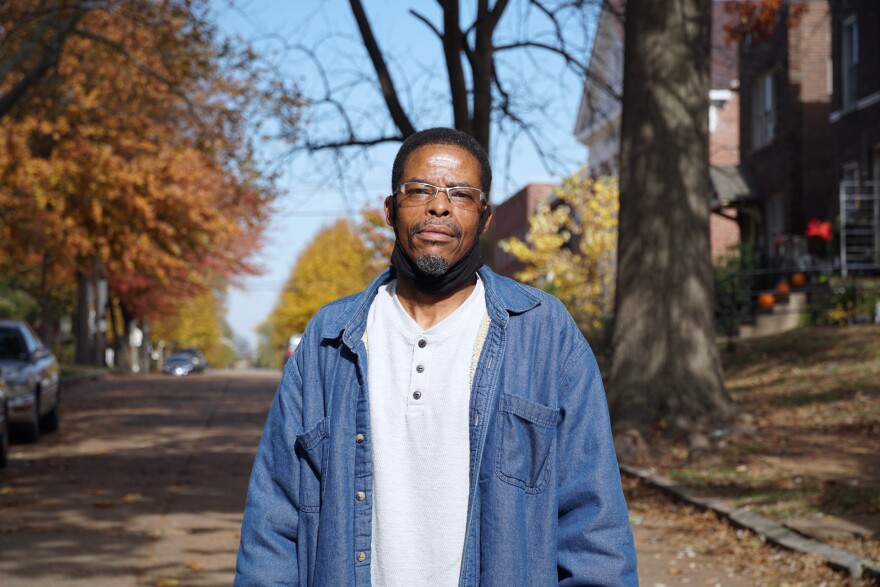Lashawn Casey left Chillicothe Correctional Center in the dark.
Her release date, Oct. 9, marked the end of a two-year sentence. She anxiously boarded a 4 a.m. bus that would eventually take her to St. Louis.
But Casey was also faintly aware of what would happen once she arrived in St. Louis.
“I didn't know my address,” she said. “I had no idea where I was going to be living.”
A coronavirus outbreak at the prison sabotaged her original plan for after her release. She signed up for a class to become a certified landscaper and wanted to work for a company. But the class was canceled, along with her mandatory prerelease classes — ones that were meant to prepare her for a successful reentry into society.
Casey is among 250 people a week who are released from Missouri prisons. Many are finding it difficult to resume their lives, partly because prisons have limited resources to prepare them for reentry during the coronavirus pandemic.
In response, the Missouri Department of Corrections overhauled the way it monitors people after release, and St. Louis-area social service organizations filled in the gaps.
The pandemic complicates reentry
Before the pandemic, Casey found Criminal Justice Ministries, a St. Louis nonprofit that provides housing to people recently released from prison. The organization launched its first women’s housing program in July. Casey was one of the first women to sign up but didn’t connect with the program’s case managers until she arrived in St. Louis.
Casey said she would be homeless if it wasn’t for Criminal Justice Ministries.
“If I wasn't here... I'd be living with a friend, probably someone who's using,” she said. “I would be right back into the toxic situation that I was in.”
Criminal Justice Ministries aims to house 20 women by the end of the year, Housing Coordinator Brandon Reid said. But the nonprofit has found it hard to connect with women and spread the word about the new program, Reid said.
If I wasn't here...I would be right back into the toxic situation that I was in.Lashawn Casey
“Historically, if we want to create housing programs, you want to be inside the prison,” Reid said. “You want to show your face.”
Since March, tighter visitor restrictions at Missouri prisons have delayed communication between inmates and social service providers.
Recently incarcerated people have also struggled to communicate with providers after release, as meetings shift to virtual settings and social distancing makes it harder to connect.
Casey attends a support group through Criminal Justice Ministries every week on Zoom. But she’s used other people’s phones to connect, as her phone doesn’t have the ability to download the app.
Despite a shaky economy that is still recovering, unemployment and homelessness among formerly incarcerated individuals has not risen during the pandemic, said Julie Kempker, director of the Division of Probation and Parole for the Missouri Department of Corrections.
About 65% of Missouri’s recently incarcerated individuals are employed, Kempker said.
If a person on probation or parole does not have a job or housing, it can be seen as a violation and in some cases can be a reason they go back to prison. Kempker said those cases are rare, and her officers want to help people during the pandemic find employment.
The ‘silver lining’
The pandemic forced the Department of Corrections to improve its reentry practices.
Probation officers began working remotely and visiting recently incarcerated people at home or at treatment programs in July, rather than requiring them to visit probation offices, Kempker said. The new model is part of a three-year plan the department rushed to launch this summer, after requiring a majority of its 1,100 officers work remotely.
“The silver lining in what we originally thought could be a potential nightmare has actually worked out better for all of us,” Kempker said.
Probation officers can now meet people through Zoom, if needed. Kempker said her department is focusing on assisting moderate and high-risk offenders and loosening its monitoring of low-risk offenders.
The department also started working closer with nonprofit social service providers, Reentry Manager Ken Chapman said.
Before the pandemic, the department only communicated with nonprofit social service providers on a case-by-case basis, but now Chapman leads a monthly meeting with the organizations.
“It's things that we as state agents should have been doing a long time ago,” he said.

Local organizations have been a beacon in the uncertainty caused by the pandemic.
After serving more than 25 years, Keith Brown leaned on Criminal Justice Ministries to find an apartment. Now a middle-age man with specks of grey in his black curly hair, Brown has spent nearly half his life in prison.
“I’m thankful to have a roof over my head and to be able to sleep and not be put in a position where somebody is demanding that I paid $300, $400, when I don't have a dime,” he said.
The STL Reentry Collective started a mutual aid fund in July to assist formerly incarcerated people. The fund, which was founded by people involved with the Washington University Prison Education Project, has since raised over $40,000 and distributed money to more than 60 formerly incarcerated people. Most of the funds have been spent on rental assistance and medication, a spokesperson said.
Due to a flurry of submissions, the fund has only been able to fulfill around a fourth of requests.
Correction: A previous version of this article misspelled Missouri Department of Corrections Division of Probation and Parole Director Julie Kempker’s last name.
Follow Kayla on Twitter: @_kayladrake




